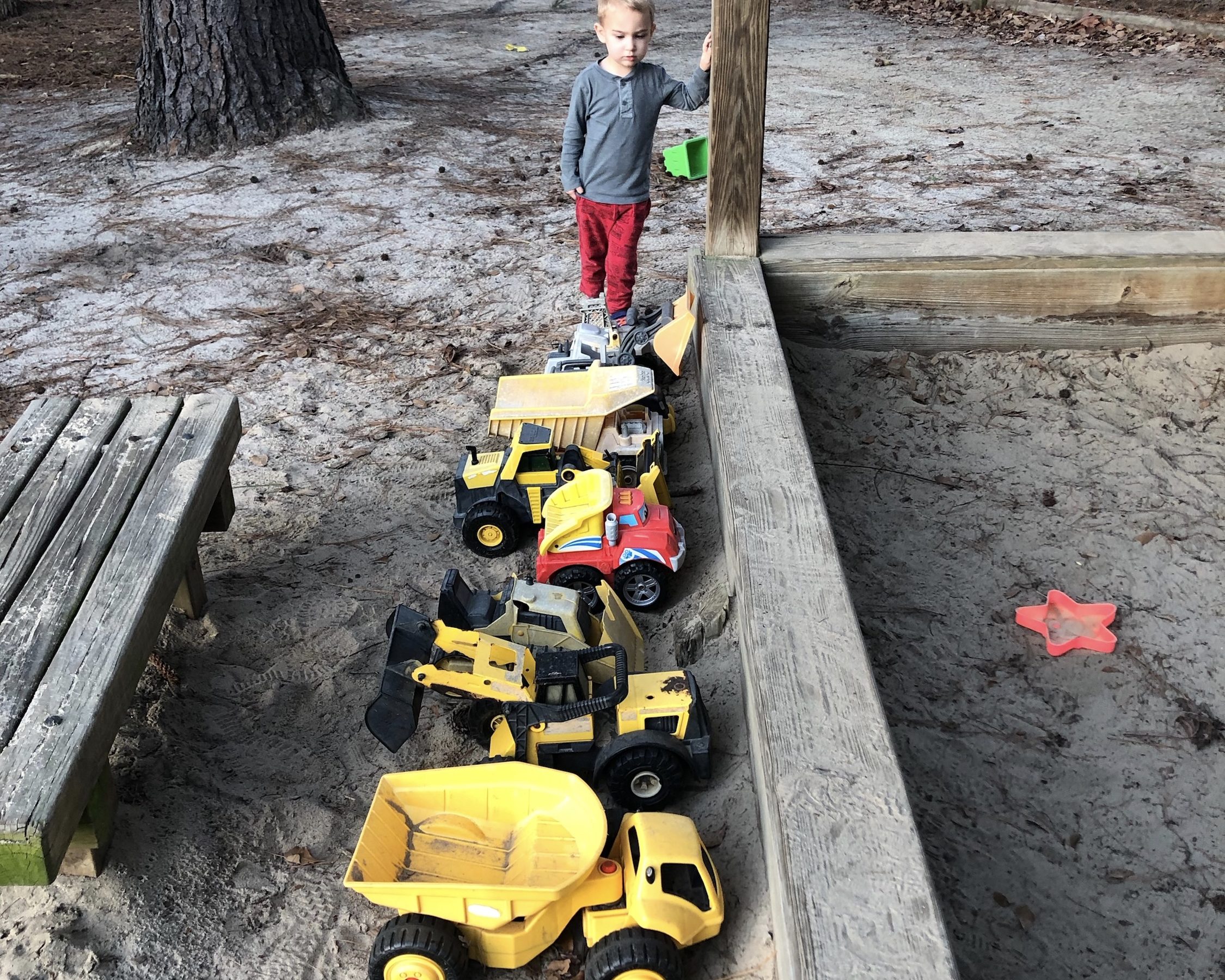“Before a child reaches the age of three, the highest form of work and the most ennobling that engages him is that of arranging furniture and putting things in order, and it is also the one that calls for the greatest activity.” ~ Maria Montessori, The Discovery of the Child
In their first six years of life, the child will pass through stages of development called “sensitive periods”. During these stages of development, and supported by their absorbent mind, the child is ready to master specific skills effortlessly. Dr. Montessori’s observations revealed these sensitive periods; they involve movement, mathematics, refinement of the senses, social skills, attention to small objects, expressive language, writing, reading, spatial relationships, music and order.
Sense of Order
Between the ages of one and four, the child’s sensitive period for order is heightened. Their need for routine and external order in the environment is innate. They crave consistency and repetition and are looking for rules, boundaries, and an environment to support it: “A place for everything and everything in its place.” Not only do they crave these boundaries, they depends on them.
The Prepared Environment
An organized and prepared environment will help the child feel secure and balanced. When everything is “as it should be” the child will respond in kind. This order includes their clothing, food, furniture, games and toys, books, etc. This includes the things you do and say as a parent. Surprises and changes are generally not well-received during this sensitive period. If something is ‘off’, the child will likely reveal it!
When Something Feels Off, It Probably Is
The child really doesn’t mean to be ‘impossible to please’ at times. An ‘off’ situation can be impossible for the child to bear—and/or explain. Because their expressive language is still developing, distressful sounds and actions are often the way they make their feelings known. And in those moments of distress, they are as overwhelmed as you may begin to feel.
Understanding and Connection
Meltdowns and distress can be shortened and diffused with an understanding of the child’s reaction to a situation. Stay calm, connect with the child and articulate what you are seeing: “It seems you wanted to go outside. It’s storming right now. Let’s look together … “ It may take a few minutes for the child to regroup. When they are ready, offer two age-appropriate activity choices its place, e.g.: “Since its too stormy outside, let’s do something fun inside. Would you like to play with play dough or paint?” This gives them some control over the situation while also giving them boundaries.
Sensitive Periods Are Windows of Opportunity
Sensitive periods naturally call to the child, compelling them to engage in their innate work of self-construction. These windows of opportunity happen only during the early years of learning. If missed or restricted, it is difficult to ‘reopen’ these windows. It’s a time of effortless learning and unconscious development that will serve them for life.
Observation
Observation is always the best tool for recognizing the early needs of the child. Although not all sensitive periods are quite as obvious, when developing their sense of order, the child will always reveal it—exactly as it should be.

